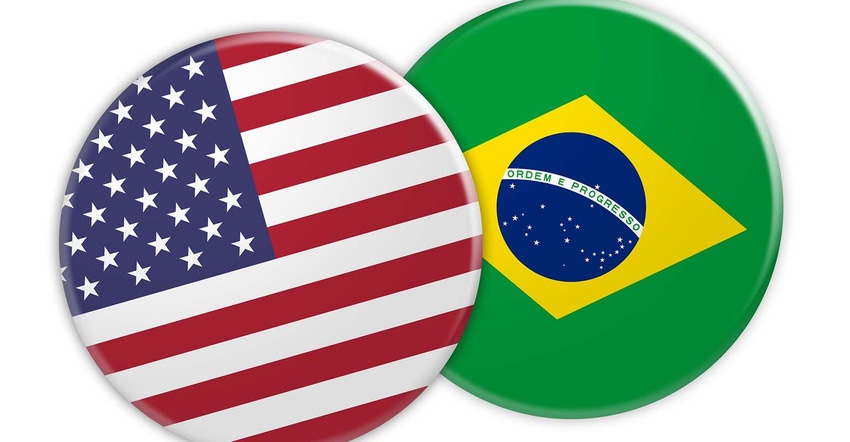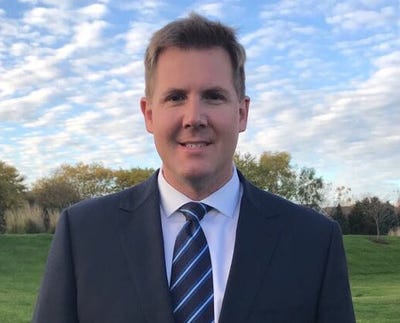
When I moved to Brazil 20 years ago, it was common to see combines harvesting without cabs and employees living under black plastic. In fact, one of the farms we purchased had several employees living outside under plastic tarp strung up between trees.
Brazil has made a tremendous amount of progress since then. Gone are the cab-less combines, now replaced with the same larger, modern equipment used by U.S. growers. Brazilian agriculture has been on a roll the last several years, appearing all but impervious to market disruption, seemingly expanding their production area at will.
While Brazil’s agriculture default setting is always set to growth, the U.S. played a major part in helping to accelerate their expansion due to our trade wars with China. We correctly argued that our foreign policy would weaken our agriculture industry and strengthen others, particularly those in Brazil. That is exactly what has happened. I also believe that despite Phase 1 trade agreements, long-term damage has been done to the trade relationship with China. The USSR’s response to Carter’s wheat embargos in 1980 was to first develop alternative relationships for sourcing their food needs, while developing their own domestic supply in the long term, eventually making our exports less relevant. While the shift was gradual, the decline for U.S. wheat exports can be traced to those embargos forty years ago.
Brazil has become emboldened by all of this, planning to become the largest oilseed supplier in the world. The fact that they are currently the lowest cost producer only helps to make that come true. Much of this is due to currency weakness, as their Brazilian Real has declined by 40% since January, making their products cheaper on the world market. It also allows the local farmers to get more for their product in local currency, assuming they have no dollarized debt.
On the other hand, many of the large farmers have incorporated dollarized debt in the last decade to finance their expansion. Unless this debt is hedged through dollarized sales, it leaves the farmer completely vulnerable to currency weakness. As an example, if they have $1 million in U.S. debt, they needed 4 million reals to pay it back in January. As of this week, they needed nearly 5.6 million reals to pay back the same loan.
While Brazil’s infrastructure system is not nearly as efficient as in the U.S., they have still managed to grow despite their limitations. The primary advantages U.S. farmers have over Brazilian farmers is both their financial liquidity and their ability to manage price risk. U.S. farmers will need to develop their grain marketing skills to outperform their Brazilian counterparts.
U.S. farmers can set a price floor using put option strategies or re-own their crop buying call options. These strategies can add value to their cash sales which are not readily available in Brazil.
U.S. farmers can also maximize their use of crop insurance, something Brazilian farmers do not have access to. In tough times like this, U.S. farmers are looking for reasons to justify cutting expenses, including crop insurance. Don’t do that. We don’t know how bad this market is going to get yet and COVID-19 is far from over. Brazilians would fall all over themselves for revenue protection like what we are accustomed to here.
U.S. farmers still have access to cash that is cheaper than in Brazil. Keep credit lines open and available if possible. Farmland values are still strong, providing much needed equity and collateral for necessary liquidity.
Matthew Kruse, President of Commstock Investments, can be reached at 712-227-1110 or emailed at [email protected].
Futures trading involves risk. The risk of loss in trading futures and/or options is substantial and each investor and/or trader must consider whether this is a suitable investment. Past performance is not indicative of future results. Trading advice is based on information taken from trades and statistical services and other sources that CommStock Investments believes to be reliable. We do not guarantee that such information is accurate or complete and it should not be relied upon as such. Trading advice reflects our good faith judgment at a specific time and is subject to change without notice. There is no guarantee that the advice we give will result in profitable trades.
The opinions of the author are not necessarily those of Farm Futures or Farm Progress.
About the Author(s)
You May Also Like






